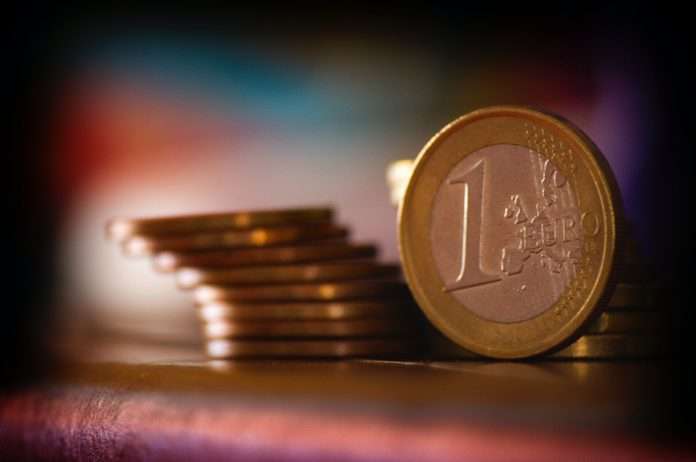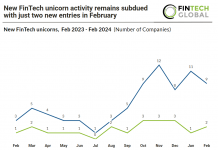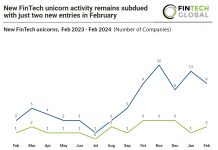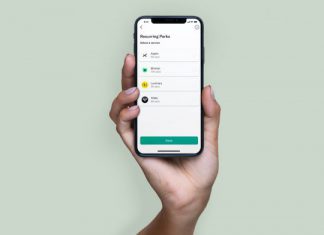The European Commission today introduced two proposals aimed at enhancing the use of both physical and digital forms of the euro across the euro area.
The proposals aim to safeguard the use of euro cash and establish a legal framework for the potential issue of a digital euro by the European Central Bank (ECB) as a complementary form of currency to physical cash.
While the euro continues to be a symbol of European unity and strength, payment preferences among individuals and businesses have significantly evolved. Despite 60% of survey respondents expressing the desire to retain the option to use cash, there is a noticeable shift towards digital payments through cards and applications offered by various banks and FinTech firms, a trend that was catalysed by the COVID-19 pandemic.
To cater to these evolving trends, the Commission has proposed measures to ensure that citizens have both payment options – cash and digital – readily available. A key part of the proposed legislation includes setting up a framework for a potential digital euro, providing an additional option that allows people to pay digitally with a widely accepted, affordable, secure, and resilient form of public money in the euro area. The digital currency proposal offers a cheap and secure digital payment solution, allowing transactions both online and offline.
The legal tender of euro banknotes and coins, widely accepted across the euro area, has been given additional attention under the new proposal. It stresses the accessibility and acceptance of cash, addressing emerging issues in certain member states and sectors where access to cash has been compromised due to ATM and bank branch closures.
On the digital front, in response to the economy’s digitalisation, the ECB is considering the introduction of a digital euro, which would offer consumers an alternative pan-European payment solution. The digital euro would provide more choices for consumers and enhance the international role of the currency. The digital currency would work like a digital wallet and could be used for payments both online and offline. Banks and other payment service providers across the EU would distribute the digital euro to people and businesses.
The proposal for the digital euro also outlines that it could serve as a foundation for further innovation, enabling banks to offer innovative solutions to their clients.
Keep up with all the latest FinTech news here.
Copyright © 2023 FinTech Global



![Flutterwave teams up with Acquired.com to streamline outward remittances in EU and UK Temenos (SIX: TEMN) today announced that National Bank of Iraq (NBI), part of the Capital Bank Group, has successfully gone live with Temenos core banking and payments. NBI, which has 27 branches across Iraq, offers a comprehensive range of services to individuals and businesses in the country. Since 2005, NBI has been majority owned by Capital Bank, one of the top financial institutions operating in the Jordanian and regional markets, with assets of approximately JOD 7.6 billion[1]. With this implementation, NBI moved from its legacy systems onto the same core banking platform as other entities in the Capital Bank Group. This will enable NBI to operate more efficiently and integrate seamlessly with other systems to develop new products faster and deliver an improved customer experience. Capital Bank Group is a long-standing Temenos customer with other entities in the Group including Capital Bank of Jordan, Bank Audi, Société Générale Bank Jordan and NBI Saudi Arabia, already on the Temenos platform. NBI also becomes the first part of the group to adopt Temenos Payments, which enabled the bank to process more than 100,000 transactions of incoming and outgoing domestic and international payments in the first 15 days of operation, with a 99% straight-through processing rate. The migration to the Temenos platform for core banking and payments at NBI was completed in under 12 months thanks to Temenos’ pre-configured banking and payments capabilities and APIs which reduced the need for complex customizations, as well as close collaboration between Temenos, NBI, Capital Bank and delivery partner ITSS. This success was recently recognized in the IBS Intelligence Innovation Awards, with Capital Bank winning ‘Best Implementation of Core Banking Services'. The implementation at NBI follows several other successful transformation projects with Temenos for Capital Bank in the last few years, including the launch of NBI’s branch operations in Saudi Arabia in just 45 days, as well as the integration of Bank Audi and the former Jordanian operations of Société Générale, each of which was achieved in under four months. Collectively, these projects helped Capital Bank to increase operational efficiency by more than 50% within three years, bringing significant cost savings and an improved customer experience. With faster, more accurate processing and immediate service requests, the bank has maintained high customer retention rates and a reputation for service excellence. Izzidin Abusalameh, Chief Operations Officer, Capital Bank Group, commented: “This achievement marks a significant milestone in our digital transformation journey and positions us as a leading player in the banking industry. We have seamlessly transitioned the National Bank of Iraq to a cutting-edge core banking system which will not only enhance operational efficiency but also support providing our customers with a superior digital banking experience. Our continued partnership with Temenos has not only provided us with an advanced technological platform but has also facilitated a culture of flexibility and adaptability, enabling us to execute our ambitious growth plans.” Lee Allcorn, Managing Director, Middle East & Africa, Temenos, said: “Congratulations to National Bank of Iraq and the Capital Bank team on this successful implementation that gives NBI business agility and the same modern technology platform and ability to deploy fast with pre-configured banking capabilities as the rest of the group. With Temenos, Capital Bank Group is future-ready, and we are proud to support them as they continue to innovate and leverage our platform to grow sustainably and enhance the banking experience for customers.”](https://fintech.global/wp-content/uploads/2024/04/rupixen-Q59HmzK38eQ-unsplash-2-218x150.jpg)







